Synth Geekery 241
In episode 241 we talked about synths, eurorack, sequencers, drum machines, samplers, effects and software! Plus all the usual segments! Funny Side, News from the Geekery, Price Watch, Name that Synth …
Show contents:
- About
- Guests
- Video replay
- Funny Side
- News from The Geekery
- Price Watch
- Name that Synth
- Saturday Sonority
About the Synth Geekery Show
Synth Geekery is a weekly podcast/live stream (YouTube) show about everything synthesizers, drum machines, samplers, sequencers, eurorack and music technology. We take the “one of the masses” viewpoint, where we are also users of gear just like you (read: we’re not influenced by commercial product placement).
The show relies on the generous contributions of the synth community. You can contribute in many ways including supporting us via our YouTube Channel Membership or Patreon. We also have regular and special video guests: if you would like to take part in future shows – please contact me via email on the about page here.
Your Host
Ranzee (Ranz Adamson) is your show host. He’s based in Perth, Western Australia and has been a hobbyist musician and technologist for most of his life. More information can be found about him here.
YouTube: https://www.youtube.com/ranzee
BandCamp: https://ranzee.bandcamp.com
Guests
This week’s video guests are:
Daren T. Housse
Bandcamp Link: https://darenthousse.bandcamp.com/
Youtube: https://www.youtube.com/channel/UCLPHxpZgFKKE1wkG9ndto3A
Daren resides in the UK and is one of the first video guests on the show since 2019. He has a large amount of tracks on his youtube channel plus a great album collection over on BandCamp.
SynthAddict
Andy is a musician and technologist from the bay area in California. He has an amazing collection of music tech gadgets and a large knowledge of synthesizers.
Youtube: https://www.youtube.com/channel/UCUtABvP7q29uvLKi73zIjFQ
Ian J. Cole
Ian is a musician, composer, sound designer and producer currently producing solo ambient electronic music. He also runs Sinners Music which is a Record Company and Online Music Retailer in East Yorkshire, England
Youtube: https://www.youtube.com/c/IanJCole
Chris – Maikshifter
Chris is a musician and technologist from Perth, Western Australia. He’s always had a love for creating and tinkering with music electronics and has recently embarked on a new journey creating eurorack modules.
Youtube: https://www.youtube.com/@Maikshifter
Video replay
Funny Side
The funny side segment is a collection of memes that are somewhat relevant to the synth geekery community. Some of these images are taken from Facebook, Instagram and other social media sources. Please respect the creators. Hope you enjoy this week’s selection:
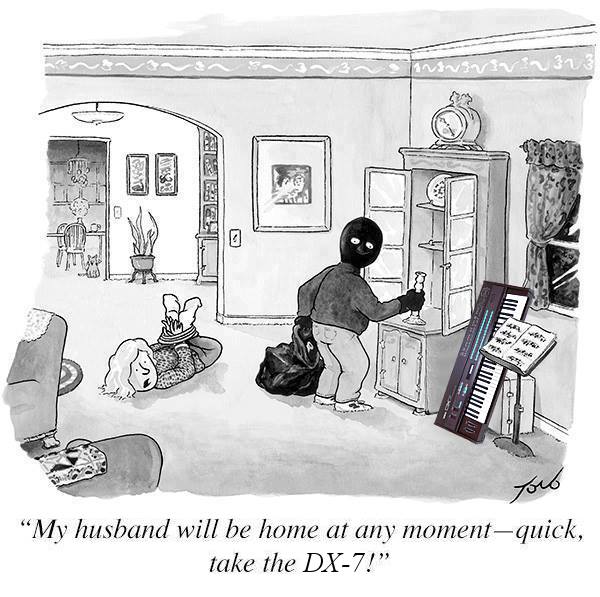


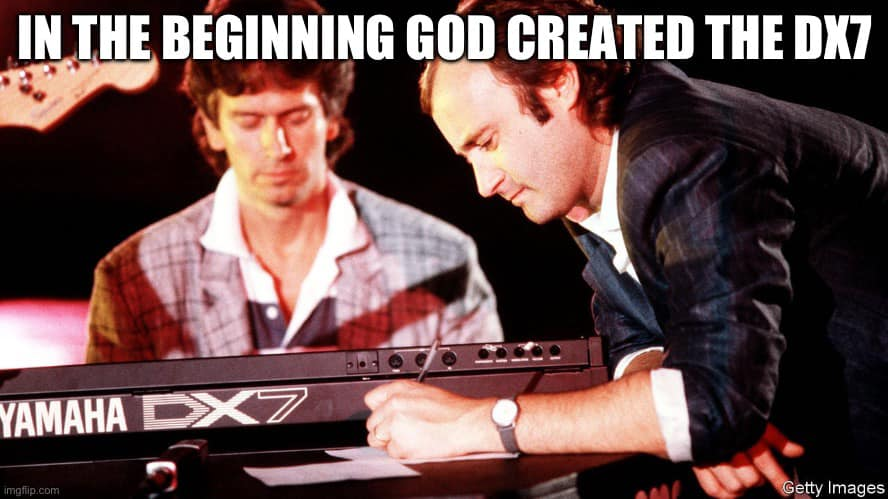
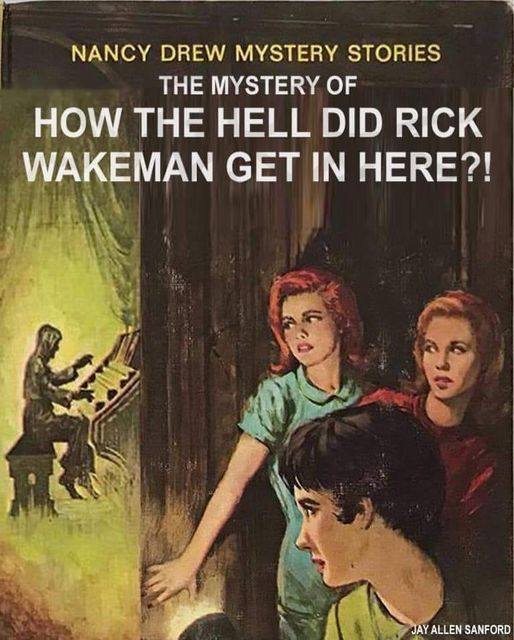
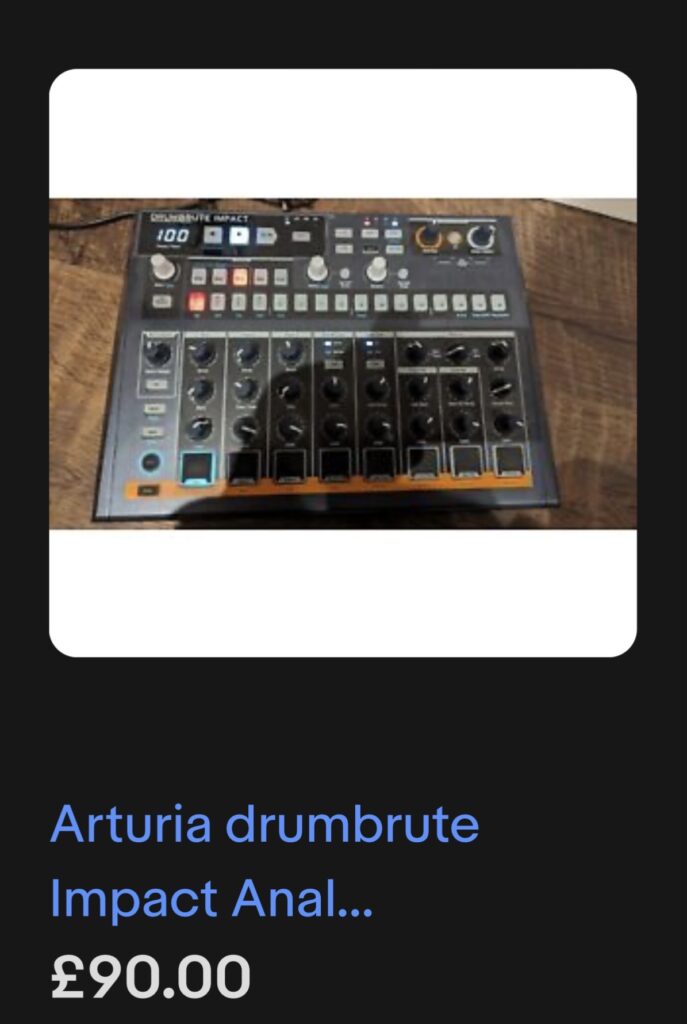
News
Pittsburg Modular Taiga Keyboard
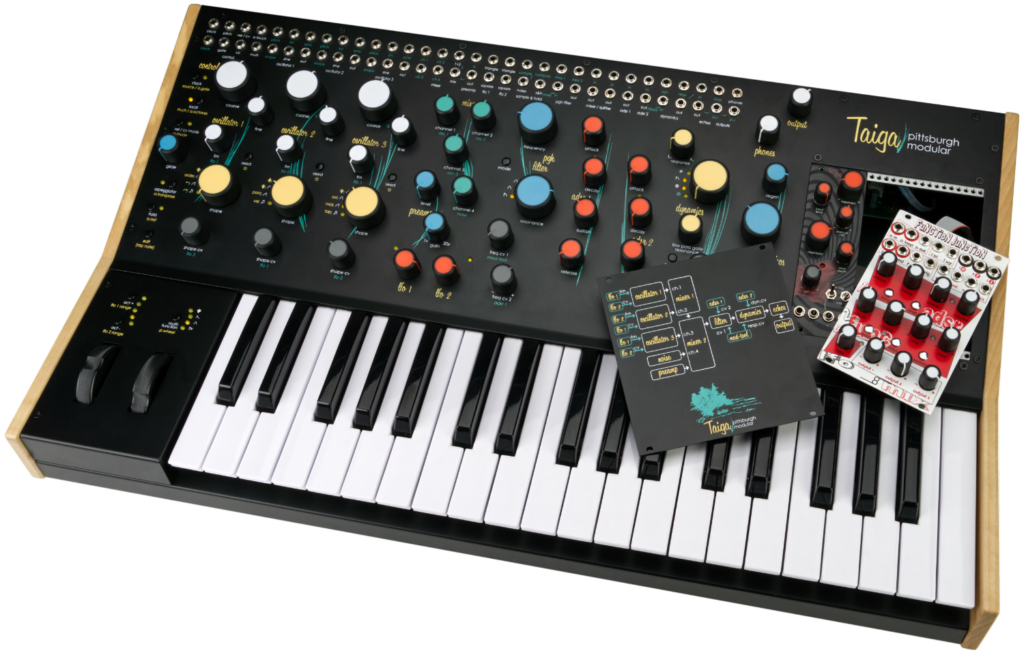
Features:
- Paraphonic synthesizer with unique additive elements
- 37 note aftertouch equipped keybed with full-sized keys
- Fully patchable – use Taiga Keyboard’s components as separate modules with external devices or reroute its internal patching.
- 24hp powered Eurorack Modular Expansion Bay
- 64 point patch bay for rerouting internal signal flow and integrating external sound and modulation sources
- Controllable via MIDI, CV, and integrated pseudo random sequencing mode
- Clock-synced arpeggiator
- 3x Pittsburgh Modular Synthesizer developed 100% analog oscillators, each with dedicated coarse and fine controls
- Oscillator waveforms – sine, triangle, and saw – Waveforms can be combined
- 3x Pittsburgh Modular Synthesizer 6 stage wave folder/shaper circuit – folds inputted waves back onto themselves to increase harmonic content
- Oscillators include frequency modulation (FM)
- Noise generator – pitched somewhere between pure white and pink noise. Perfect for percussion or adding a bit of edge to a sound.
- Variable state, multi-mode “Pittsburgh No-Dead-Spots” filter (lowpass, bandpass, highpass, modes can be combined)
- Sample & Hold circuit
- 2x Analog ADSR / envelope generators
- Pittsburgh dynamics section – an alternative to an envelope generator and a VCA, the dynamics controller is a Pittsburgh Modular invention that adds a dimension of control over a vactrol-less lowpass gate circuit, adding release time.
- 2x Dual range analog LFOs with square and triangle wave outputs.
- LFO Range High: 2 Hz to 500 Hz Low: 41 seconds to 5 Hz
- Dual Channel Mixer – 2 2-channel mixer and a 3-channel mixer joined together, capable of mixing both audio or control voltages.
- Preamp that uses a high gain, soft clipping overdrive limiter circuit to increase the level of audio signals. The preamp can be used to cleanly increase the level of external audio to internal signal levels, or it can be used as an overdrive / limiter for internal signals.
- Digital multi-mod tool – modulation control via CV, random generator, and extra LFO and envelope generator
- Internal clock with tap tempo and can be clocked via an external source.
- Built-in clock divider
- Echos – 100% analog bucket brigade delay
- Included in the box – 1x Taiga Keyboard, 1x Taiga Keyboard wall-wart power supply, 10x Amazing Nazca Noodles Patch Cables
Price: $1299
Link: https://pittsburghmodular.com/
MIDI Goblin
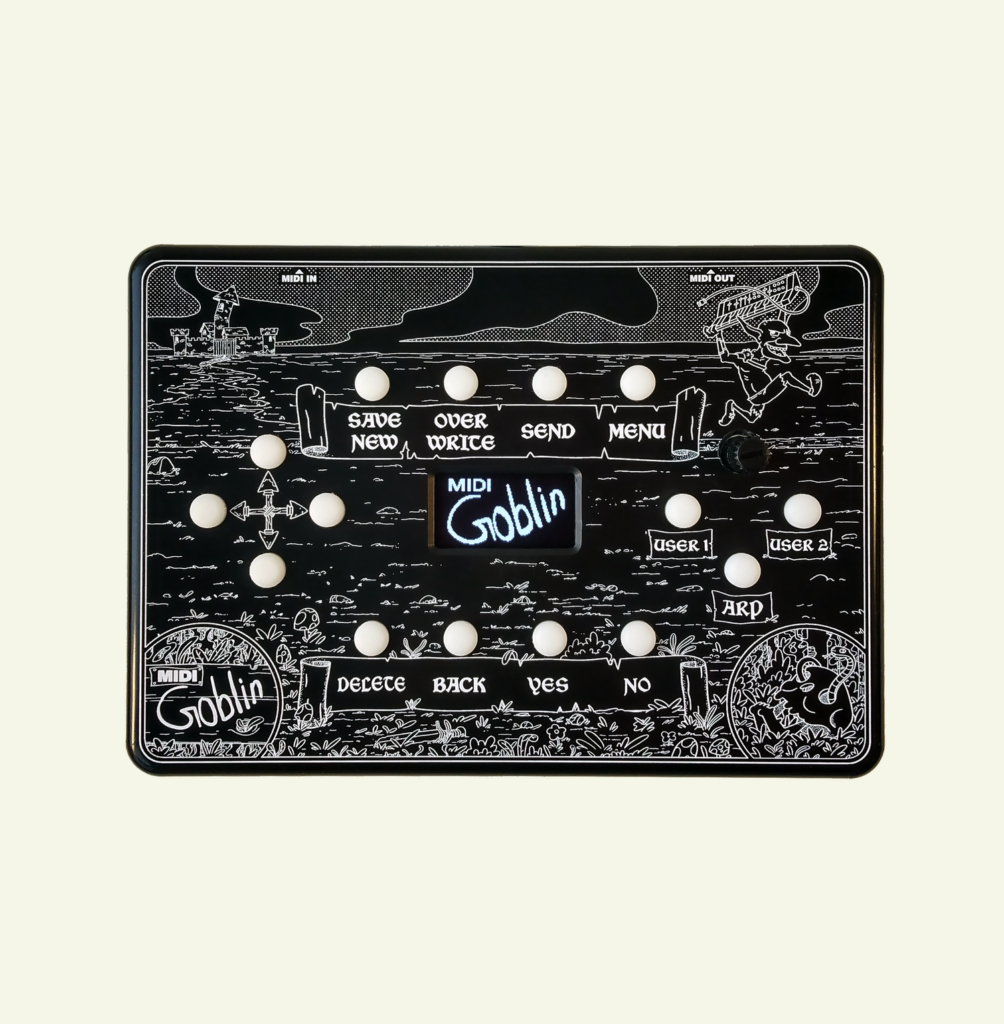
Features:
User defined devices – User’s data determines what devices are supported by their MIDI Goblin.
Patch saving – You can save and load patches to micro SD using your MIDI Goblin. The OLED screen and the ability to name patches makes the process simple. Only devices that use MIDI CC (control change) data for saving and loading patches will be compatible with MIDI Goblin’s patch storage feature.
Arpeggiator – MIDI Goblin reads MIDI Note messages arpeggiates them. Users can arpeggiate up to 8 notes, adjust speed and change modes on the fly.
Sequencer – You can create sequences on the fly of up to 32 steps. You can and, edit or remove notes, change the recording / playback mode, adjust the sequence tempo, length and save your sequence (plus playback speed) to Micro SD.
Auto-Chord – With the press of a key, you can create chords in major or minor key up to 8 notes in length.
Arp-Note – Arp-Note is a combination of the arpeggiator and auto-chord features. Press a note, hear an arpeggio. Users can define the length of the arpeggio (up to 8 notes) in major or minor keys ,and choose the direction of the arpeggio.
MIDI LFO – Using the MIDI LFO function you can automatically modulate any MIDI CC number. You can modulate the CC value based on basic waveform shapes to craft new sounds for your synth.
Price: TBA (via Kickstarter)
Link: https://www.midigoblin.com/
Kurzweil K20 Synthesizers – K2061 & K2088
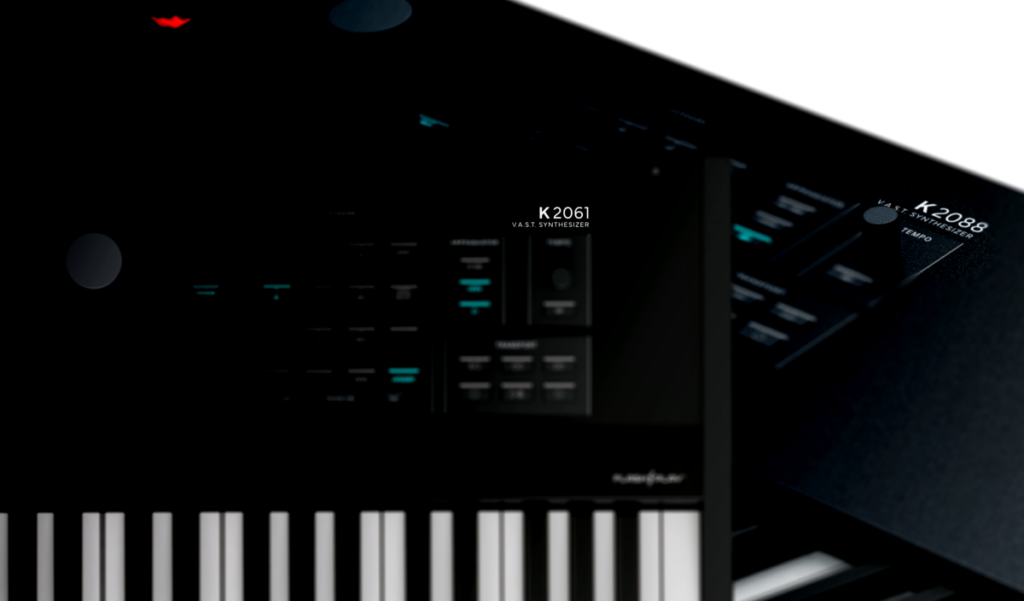
Both synths feature an updated version of the company’s Dynamic Variable Architecture Synthesis Technology (V.A.S.T.).Features:61- note synth action or 88-key fully-weighted hammer action w/ aftertouch
New industrial design with an aluminum+steel enclosure
Resculpted K2000 synth library
Compatible with K2 era libraries
32 layers per program
Customizable algorithms
Flash sample playback, VA, FM and KB3 engines
2 GB of factory sounds
2 GB user sample memory
Versatile FX chains and master FX section
256 voice polyphony
480×272 color screen
16-zone MIDI controller
Over 30 physical controllers per zone including an integrated ribbon
16 Arpeggiators
16 MIDI CC sequencers
16 RIFF generators
Price: TBA
Link: https://kurzweil.com/2024/02/08/the-k20-series/
AMSynths System 100M Eurorack Modules
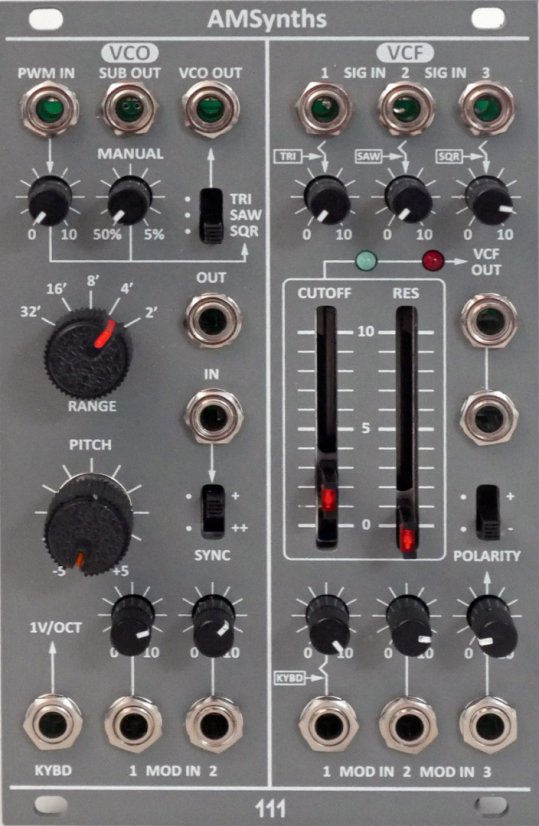
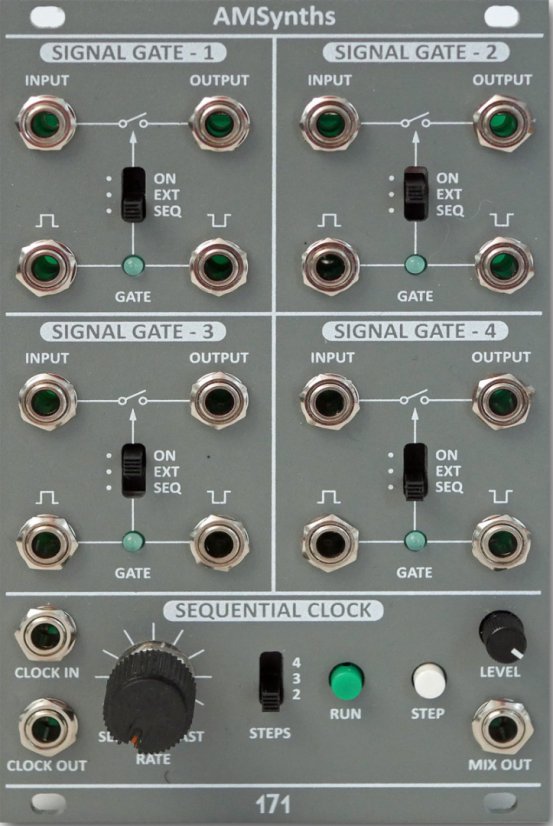
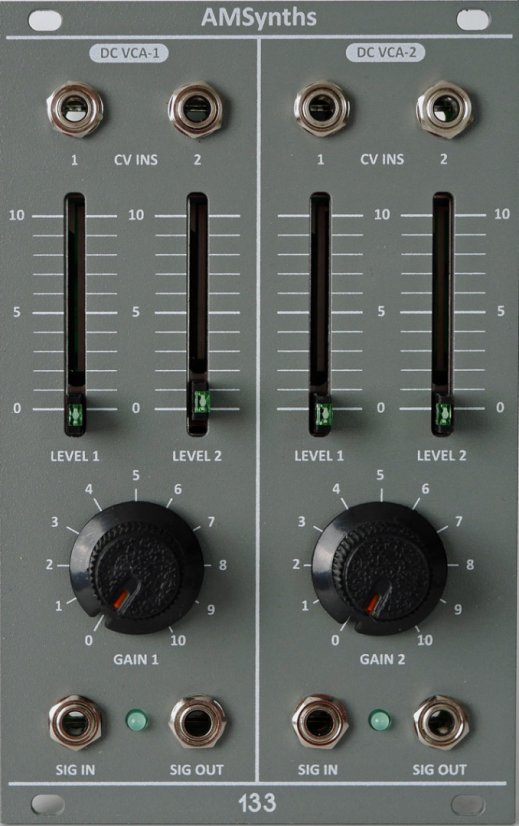
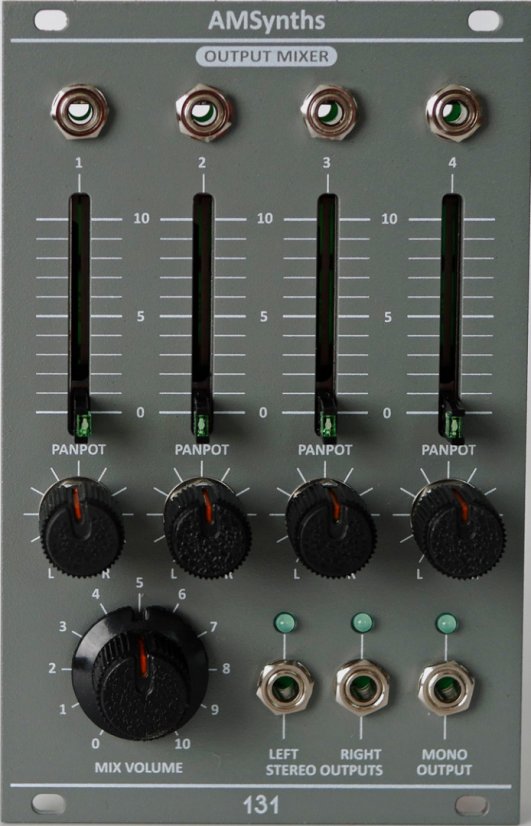
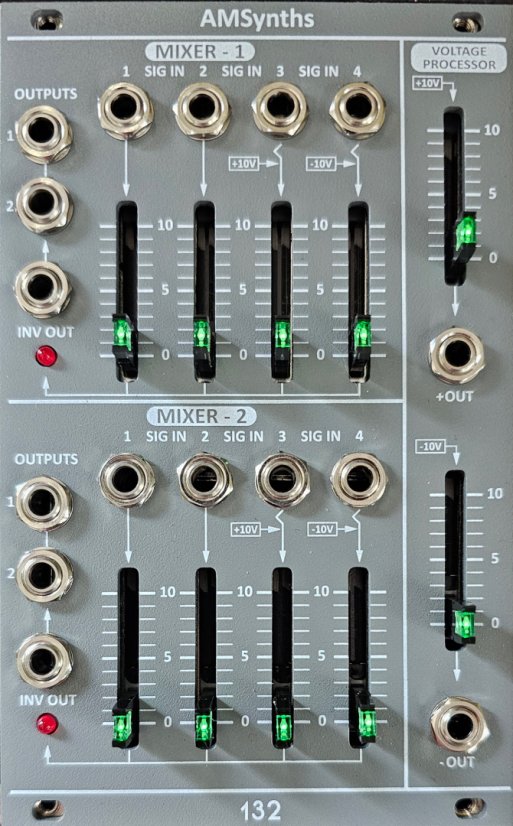
These are some of the 16 System 100M Eurorack modules that AMSynths have released that will add and compliment the Behringer range.
AM8111 VCO&VCF
VCO and VCO with internal patching for waveform to filter routing
AM8171 Sequential Switch
The AM8171 features the same four signal gates but adds in the features of a sequential switch whereby each gate can be switched on in sequence. The output of each gate is mixed together and provided as a MIX OUT, in addition to separate outputs. The sequential switch can be controlled by the on board LFO or an external LFO (for example the Behringer 140 and 150).
AM8133 Dual DC VCA
The design is based on the AS3360 chip which contains two precision VCA’s. There are two 30mm CV input level slider pots for each VCA and a rotary pot for GAIN. The sliders have subtle green LED’s and the rotary pots have Roland TR808 style knobs.
AM8131 Audio Mixer
Each channel has its own input and 30mm slide potentiometer with subtle green LED lighting. The original circuit has been modernised with RC4580 Op Amps and a different approach to panning has been taken, which removes the need for dual antilog/log slider pots.
AM8132 CV Mixer
This is a set of two identical CV mixers in one 16HP module with 4x inputs each, and non-inverted and inverted outputs. Each input has its own jack socket and 20mm slide potentiometer. There are also two precision preset voltages controlled by 20mm sliders, providing 0 to +10v and 0 to -10V.
Price: from £89 to £169 GBP via their webshop
Links:
AM8111 – https://amsynths.co.uk/home/products/oscillators/am8111-vco-vcf-100m/
AM8171 – https://amsynths.co.uk/home/products/mixers/am8171-sequential-switch-100m/
AM8133 – https://amsynths.co.uk/home/products/amplifiers/am8135-quad-vca-100m/
AM8131 – https://amsynths.co.uk/home/products/mixers/am8131-audio-output-mixer/
AM8132 – https://amsynths.co.uk/home/products/mixers/am8132-cv-mixer/
Price Watch
Find below images and links to the items we showed for the price watch segment.
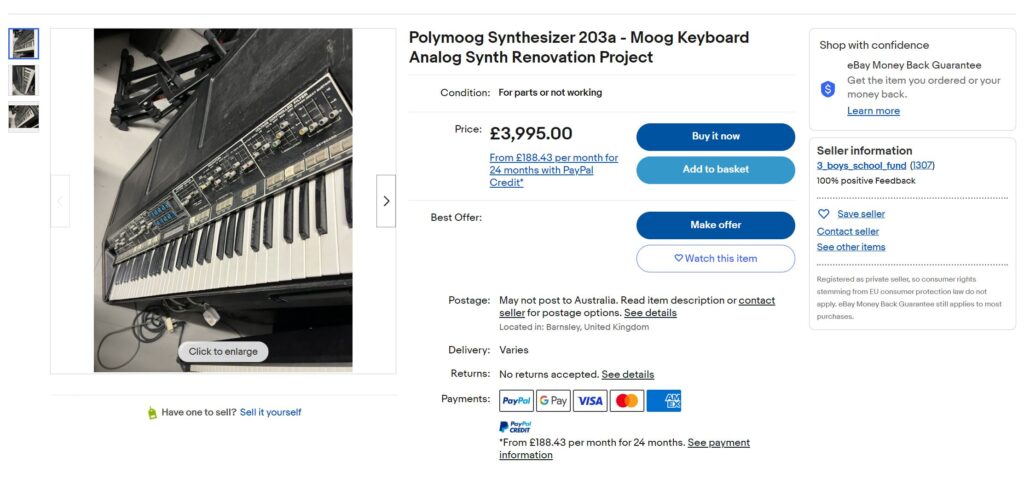
Find it here: https://www.ebay.co.uk/itm/29611006129
Name That Synth
No name that synth this week – send one in!
If you are after more information about Name that Synth – please check out this page here.
Saturday Sonority
This week’s Saturday Sonority we might talking about …..

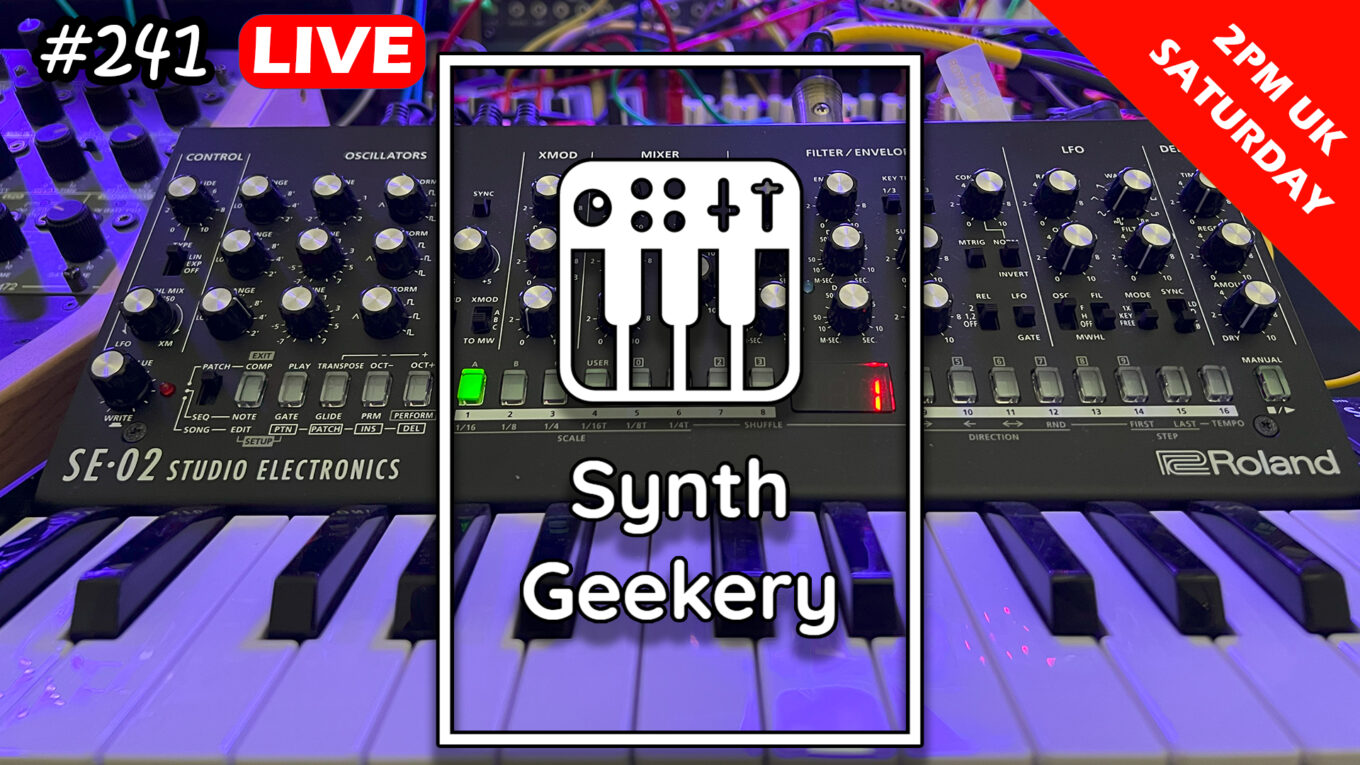


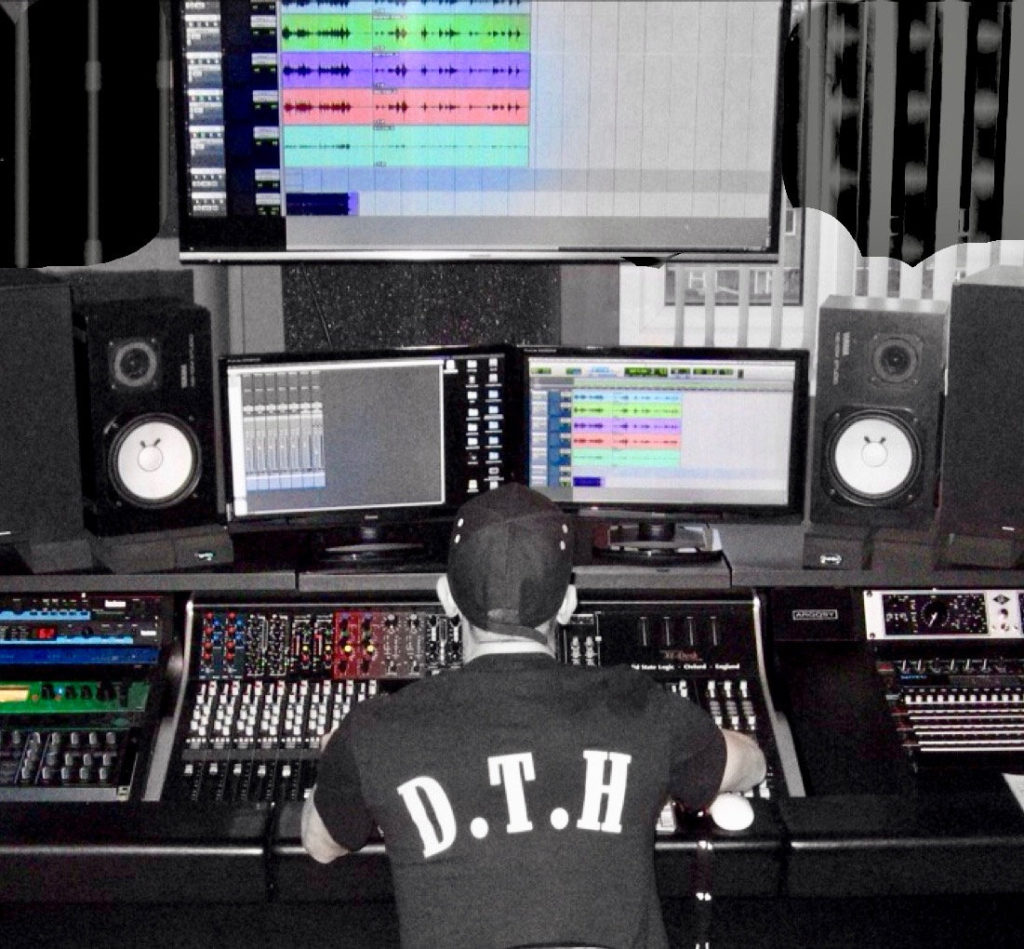
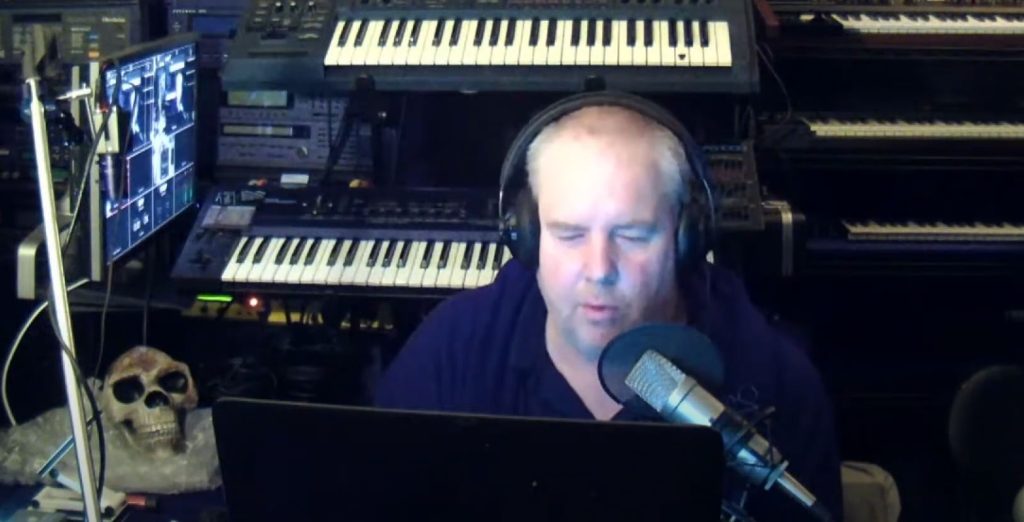

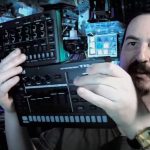


Recent Comments